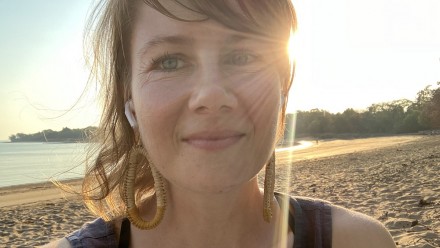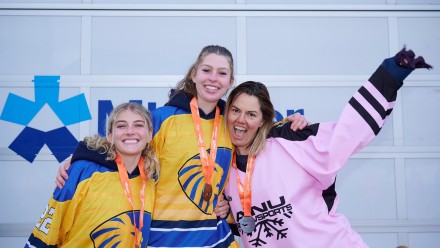Recognition of Indigenous Aboriginal traditional healing by main stream bio-medicine
What are the barriers to the recognition of Indigenous Aboriginal traditional healing by main stream bio-medicine?
Picture yourself in Cape York, a remote peninsula in far-North Queensland, travelling around by small plane, the occasional boat and a lot of four wheel driving. This was Jacqui Lavis’ life. One that inspired an idea for further study. Jacqui worked for a big engineering company based in Cairns that focused on improving sanitation linked to housing in remote Aboriginal communities. For Jacqui, this experience led to an interest in Aboriginal health.
“I hadn’t done anything since university some years ago and when the opportunity arose, I did the Master of Public Health at ANU which led to a PhD. It’s a commitment to some Aboriginal friends, including one man in particular who sent me on this journey, his name is Bernie Singleton.”
Bernie is one of Cape York’s iconic leaders. He has a strong bond with community interests and is loved and respected across Australia with a lifetime of family and traditional connections to Queensland and the Cape.
Jacqui says of Bernie; “He’s been my guide, if you are working in Aboriginal communities, it’s really important to have somebody who can take you in, vouch for you, introduce you and he’s done all of that for me.”
Jacqui explains that Bernie was frustrated with responses to Aboriginal health for a couple of reasons, firstly, “because the people of Cape York just keep getting sicker and secondly, because he could see the old ways, the cultural ways disappearing.” Jacqui’s research project was always about addressing these two important factors.
As Jacqui progressed through her PhD, her original concepts and ideas as well as her way of approaching her work changed. “I’m not seeing it as a simple equation. Of course, if the Aboriginal healers worked in the clinic or the hospital, everything would be fine. It’s much more nuanced than that, much more sophisticated. It’s about the unique Aboriginal identity and what Aboriginal people want.”
The ill-health of an Aboriginal person is the family’s concern, not just an individual concern. The other issue, she says, is that often Aboriginal people won’t use the word illness or ill-health. In this instance, consulting the family is appropriate, something which would not be fitting in a conventional clinical context.
All these nuances and subtleties are coming together in Jacqui’s research, which has opened the door to many opportunities. Not only has Jacqui been awarded the Vice Chancellor’s Travel Award to present her work overseas, she has also been invited to research retreats held by the National Centre for Indigenous Studies.
Jacqui reminds us that the Medical School isn’t a one size fits all. “It’s not just putting out doctors or great clinicians or great scientists, it’s actually got this node of people working in this space of medical anthropology which is a completely different space. It’s certainly not mainstream,” she says, “it probably should be.”
Jacqui Lavis is a PhD student at the ANU Medical School and is supervised by Dr Graham Fordham.














